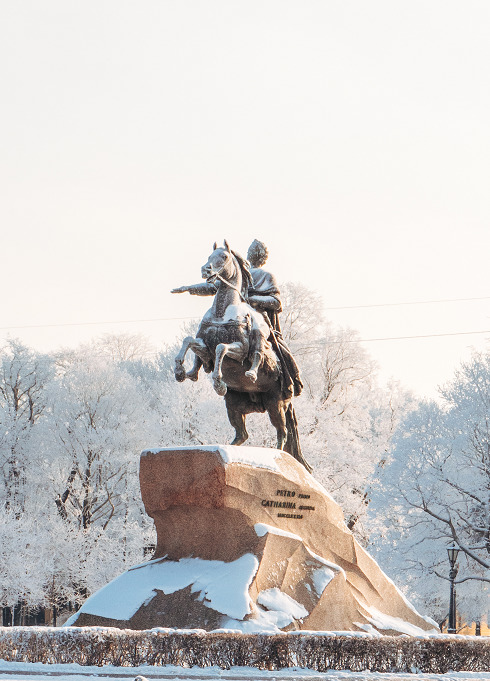

The Bronze Horseman designation might be registrable as a trademark, but only with the consent of competent authorities
On October 21, 2022 the Presidium of the IP Court upheld Rospatent refusal to register Bronze Horseman designation as a trademark, thus supporting a previous decision of IP Court as the first instance court. However, as follows from the text of this decision, the Claimant has a chance to register the trademark, provided permission of the cultural heritage authorities is granted.
In August 2020, Aqua-Color company from St. Petersburg filed a trademark application for “The Bronze Horseman” designation, which is a popular name of the famous equestrian monument to the Russian Emperor Peter the Great made in 1782 by the French sculptor Etienne Falconet.
In July 2021, examination at Rospatent ended up in a refusal, which was appealed without success at the Chamber for Patent Disputes. In the refusal, Rospatent noted that the monument is an object of cultural heritage, as well as its name, which was given to the monument by the Russian poet Alexander Pushkin in his poem of the same title, which was first published in 1837 and cited in multiple works of literature and art and cannot be trademarked without a consent from competent authorities. In this way, its registration as a trademark could be a violation of the law on cultural heritage and contrary to the public interests.
The applicant, discontent with the refusal decision, filed a lawsuit against Rospatent in the IP Court, based on a purported violation of its legal rights and providing examples of other trademark registrations containing the same designation.
The first instance court partially supported the Office, agreeing that the monument indeed qualifies as a well-known and precious cultural heritage item and under Art. 1483 of the Russian Civil Code its popular name cannot be trademarked without a consent of a competent authority; so the disputed decision was deemed correct in this part.
However, Rospatent conclusion that registration of the trademark will be contrary to public interests was revised as no justification was provided. Therefore, the decision was reversed in this part and sent back to Rospatent for a revision.
The Presidium of the IP Court considered the cassation plea filed by Aqua-Color and upheld the first instance court decision. A panel of judges deemed the Claimant’s reference to approved list of cultural heritage items (which does not include the monument itself, but rather the whole complex of structures in the historic center of St. Petersburg) to be misleading and a partial reverse of the disputed Rospatent decision to be reasonably substantiated. Patentica will monitor this interesting case, which might create a court precedent for other similar cases involving cultural heritage objects.
https://kad.arbitr.ru/Card/c1fc81aa-87aa-4fc6-9639-e34d026a3854
